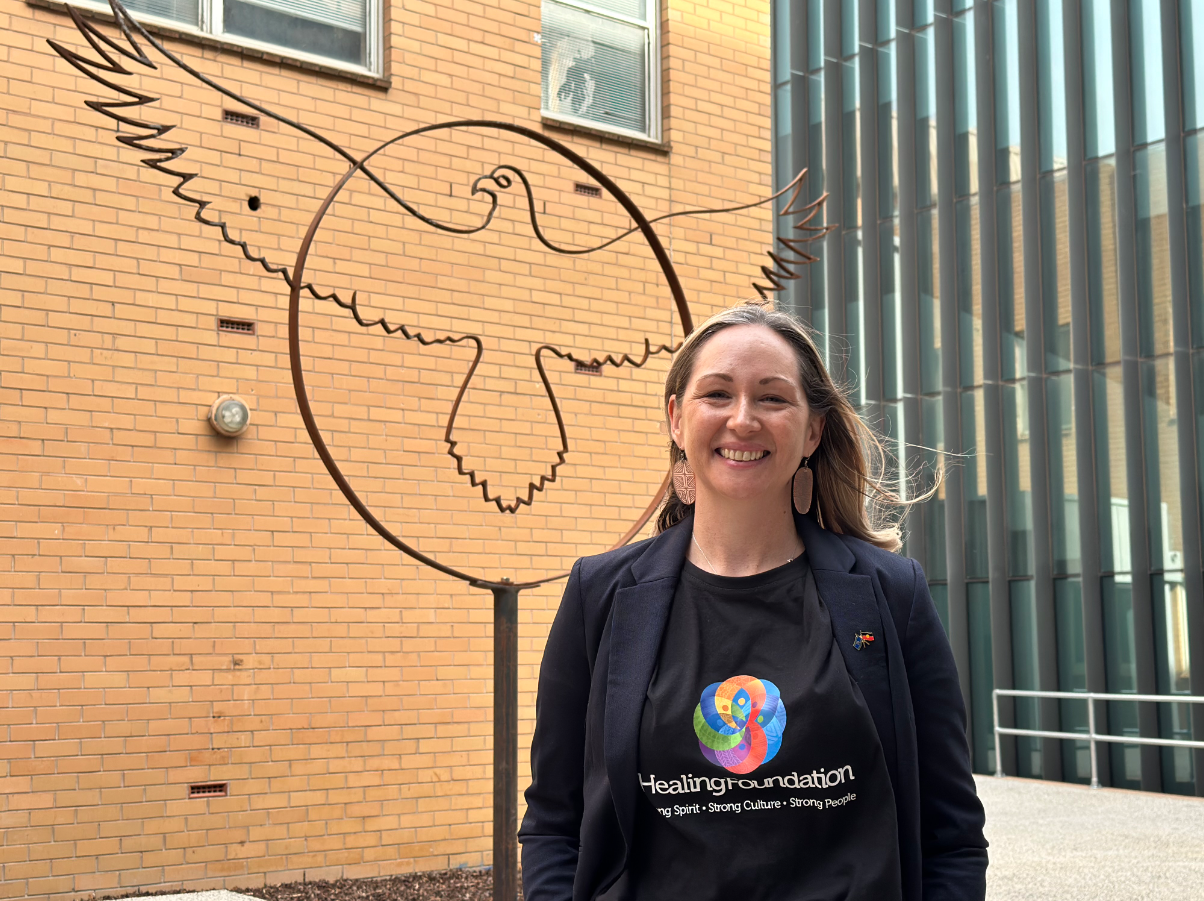Grampians Health to pilot culturally safe emergency department project for First Nations peoples

Jessica Payne, Grampians Health's First Nations Health Advisor, and Karina Demasson, Nursing and Midwifery Research Assistant have been awarded a Western Alliance Rapid Translation Grant and received funding from the Medibank Better Health Research Hub (MBHRH) for their research project aimed at ensuring emergency department (ED) visits are culturally safer for First Nations people in the Ballarat region.
The Rapid Translation Grant supports researchers to implement and evaluate evidence-based health improvements across rural and regional western Victoria within 18 months. The Medibank Better Health Research Hub supports areas of health and health system need, alongside Medibank’s ongoing commitment to community-led research in Aboriginal and Torres Strait Islander health.
Research undertaken in other Victorian emergency departments show that experience of racism, distrust in the health system and lack of cultural safety contribute to increased leave events in Aboriginal patients in both regional and metropolitan emergency departments.
"We know that Aboriginal and Torres Strait Islander people are more likely to leave an emergency department before being seen by a medical practitioner and we also know that they have poorer health outcomes than non-Indigenous Australians, so it's important to make it easier for them to stay and get the medical treatment they need," said Ms Payne, who is the Principal Investigator for this project.
The 'Creating culturally safe care pathways for Aboriginal and Torres Strait Islander people in a regional emergency department' project aims to improve quality of care for Aboriginal and Torres Strait Islander people accessing the Grampians Health Ballarat ED.
The need for this project was identified by Aboriginal and Torres Strait Islander staff and consumers of the health service with strong collective desire from the Ballarat Emergency Department frontline staff and leadership to strive for equity of access and health outcomes.
"We'll be going through a culturally informed co-design process to adapt and pilot an existing Culturally Safe ED program for Ballarat, ensuring that this works for Aboriginal and Torres Strait Islander people in our region and isn't just a cut and paste solution that might isolate some patients," Ms Payne said.
Culturally safe ED programs, such as MOB ED in the Queensland Health Service, aim to address reasons First Nations patients leave emergency departments before being seen through placing emphasis on recognition of identification as integral to clinical care ensuring safe, high-quality and culturally appropriate care whilst upholding the rights of Aboriginal and Torres Strait Islander people through health equity actions.
"To ensure the best outcome for a culturally safe and aware ED, we will work with Aboriginal and Torres Strait Islander people to design, deliver, monitor, and review this project in Ballarat. It's important that we get it right for both the health service and our Aboriginal and Torres Strait Islander community members," Ms Payne said.
Following the establishment of MOB ED in Queensland’s children’s hospitals, the number of patients identifying as Aboriginal and/or Torres Strait Islander increased by over 10 per cent, demonstrating a safer environment for people to identify their cultural background.
"Other health services who have implemented a culturally safe ED program have seen improved rates of First Nations people staying for assessment and treatment, as well as an increase of patients feeling safe enough to identify as Aboriginal and/or Torres Strait Islander when presented to the ED," said Ms Payne.
Ms Payne, a proud Yuwaalaraay woman, will be working with stakeholders from within the Aboriginal and Torres Strait Islander community, and strong allies within the Ballarat community.
"We want to be building trust and strong relationships as part of the core of the project. Building a research team of Aboriginal researchers and strong allies, with support from experienced Aboriginal researchers will ensure that the project meets the objectives we've set out for Ballarat's ED," Ms Payne said.
"We're excited to see what this pilot project in Ballarat can do for the health and wellbeing of First Nations people in Ballarat and surrounds."

